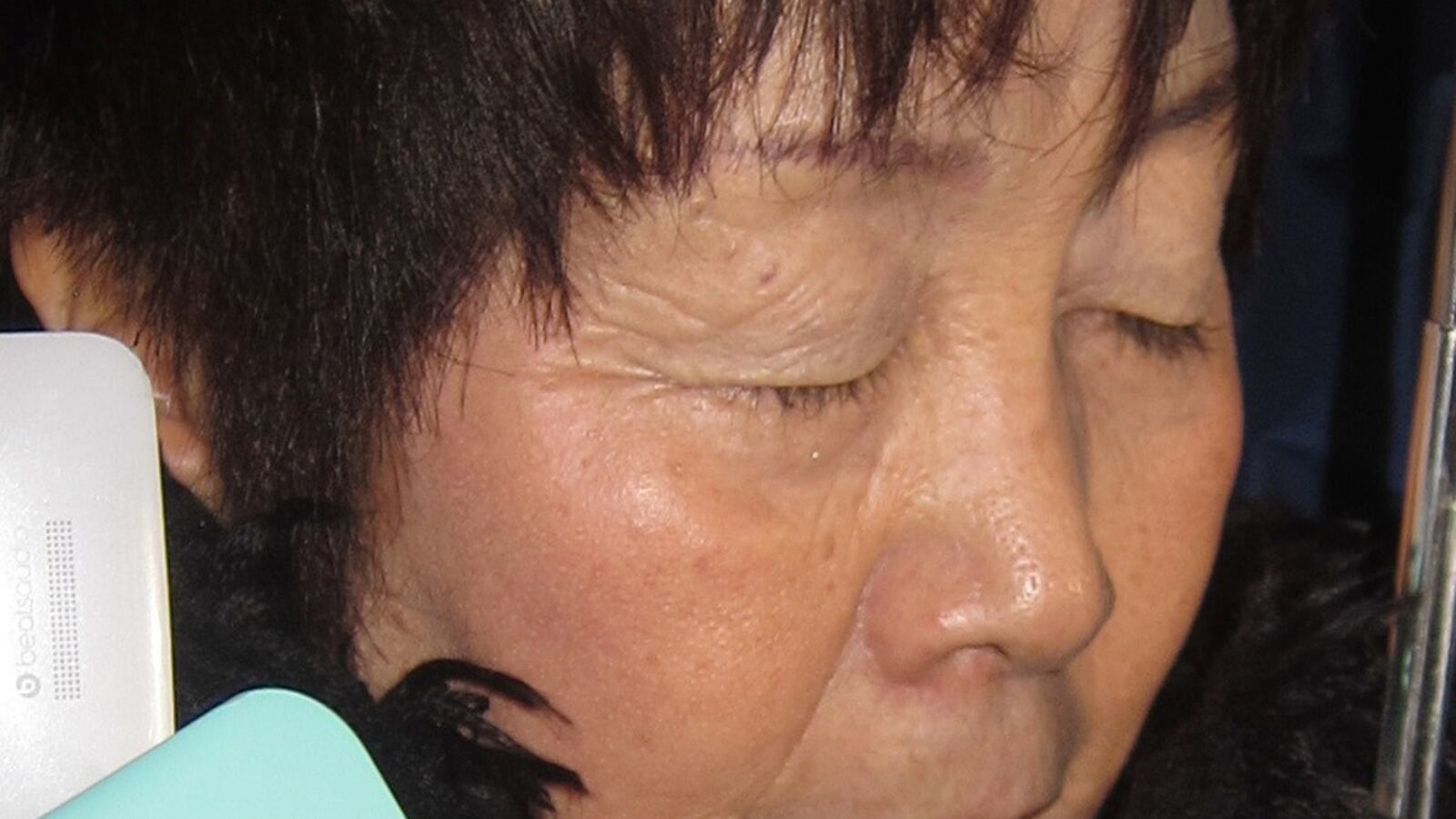TOKYO, Japan—On November 19, the Kyoto Police arrested a wealthy 67-year-old widow on suspicion of poisoning her 75-year-old husband with cyanide—and investigators suspect she may have murdered five other former partners. Thursday morning, while raiding her second home, the police discovered empty medicine capsules they believe she may have used in the alleged crime.
In other countries, black widow murders are a sensation. In Japan they’re becoming something of a tradition. The woman under investigation now is the latest in a line of what are called dokufu, poison ladies, who have a penchant for snuffing their partners to collect insurance money and inheritances.
In this case the alleged killer is named Chisake Kakehi. She has been under investigation since last year when her fourth husband, Isao Kakehi, became ill at home and then was taken to a hospital where he was pronounced dead on December 28. They had been married for less than two months.
An autopsy found highly toxic cyanide levels in the blood of the not-so-dearly departed. But there was no rush to judgment. The police investigation has spanned nearly 11 months, and along the way investigators discovered that, dating back to 1994, many of the men in the widow Kakehi's life have passed away under suspicious circumstances: her first husband died at age 54; four other men who married her or had become well acquainted with her have died since.
In September of last year, her 75-year-old boyfriend suddenly became ill after the couple ate together at a restaurant, and he subsequently died. The next month she married the man who, it is safe to presume, was her final husband.
The Kyoto Police, now working jointly with the Osaka Police, also found traces of cyanide in the preserved blood samples of a 71-year-old man in Osaka Prefecture, who died in March 2012. Police allege the man was in a close relationship with Kakehi and they are investigating the details of his passing.
The cops say Kakehi gained several hundred million yen in inheritance from the deaths over the years.
Kakehi has been interviewed several times by the Japanese media since the police began the investigation last December. She has denied all charges saying, "How would I even get hold of cyanide? I have no idea."
According to medical experts, cyanide compounds are extremely bitter and toxic; generally speaking, they can't be ingested orally without the victim vomiting or spitting out the substance immediately. Police detected a fatal dose of cyanide in Kakeshi’s husband’s stomach and blood, but did not find traces of the poison around his mouth, nor traces of vomit in the house.
Now that police investigators have discovered empty medicine capsules in Kakeshi’s second home, and traces of cyanide in her personal effects, they have formulated the following hypothesis: They suspect that Kakehi filled the capsules with cyanide and gave them to her husband on December 28, possibly telling him they were medicine, causing him to die from cyanide poisoning around 9:00 p.m. He collapsed near the entrance of his room, probably in great pain. Kakehi called for an ambulance roughly 50 minutes after finding her husband.
In an interview with Jiji News published on November 19, Kakehi, when asked about the deaths of her previous partners suggested, “It happens from time to time. That’s just my fate.”
Police investigators told The Daily Beast, “The present case seems very solid but it is too early to determine if the previous deaths all involved foul play.”
If Kakehi is found complicit in the deaths of numerous partners, she will be near the top of the hit parade for the so-called dokufu. The word, from doku (poison) and fu (lady, woman, wife) originally referred simply to "a wicked woman" but has come to take on a literal meaning in recent years.
The most infamous case was that of Kanae Kijima, a onetime housekeeper who became a highly paid mistress. In 2012, she was sentenced to death for the murders of three men, aged 41, 53 and 80, whom she met on Internet dating sites. She drugged her victims with sleeping tablets and then killed them by burning charcoal briquettes, which caused the victims to die from fatal carbon dioxide poisoning. The deaths were disguised as suicide.
Kijima is awaiting the outcome of an appeal to the Japanese Supreme Court. Her life and court-room trials became the subject of a best-selling book Poison Lady: 100 Days Of Watching The Trial of Kijima Kanae written by the famous essayist, Minori Kitahara, who is known for her dokuzetsu (poison tongue), speaking figuratively, of course.
Former bar hostess Miyuki Ueta, was charged for the murder of two men by drugging them with sleeping pills and drowning them in 2009. She was also suspected of having been involved in the death of four other men. She was given the death sentence in 2012, has had her appeal rejected, and is waiting for the Supreme Court to say whether or not it will hear her case. If not, she will be hanged.
Japan has a very low homicide rate but that may also be due to the fact that less than 10 percent of "suspicious deaths" are subject to autopsy. If the death appears to be a suicide, the autopsy rate falls to 5 percent or lower.
Indeed, it usually takes several suspicious deaths involving one person before someone does an autopsy and an investigation begins. Even then, the prosecutors often only make charges in a fraction of the cases involving a serial killer—usually the number is calculated to be just high enough to win a death penalty conviction.





